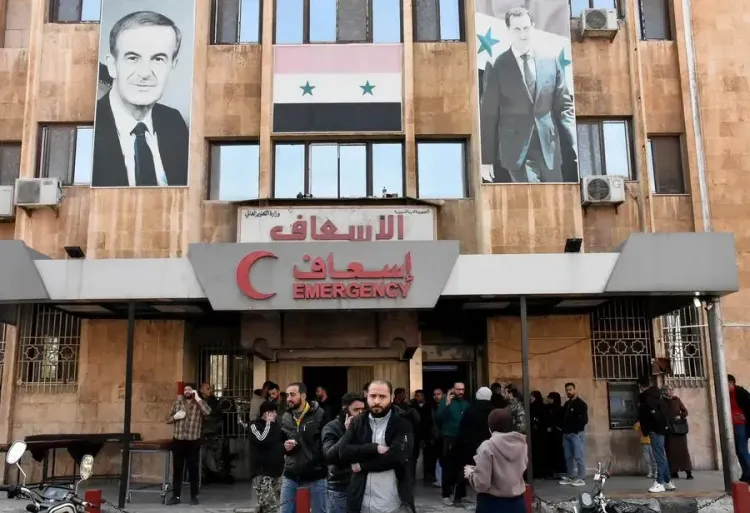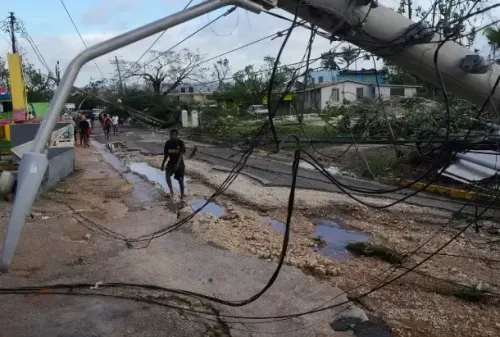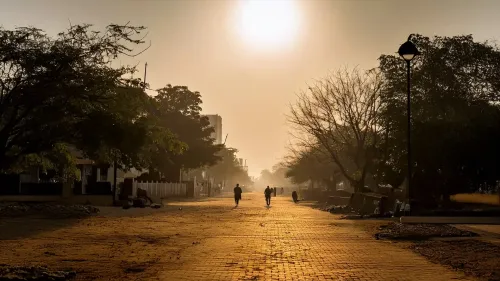UN Reports 16 Million Individuals in Syria Require Humanitarian Assistance

The United Nations, on December 10 (NationPress), described the conditions in Syria as chaotic and fluid, with more than 16 million individuals requiring assistance.
The UN Office for the Coordination of Humanitarian Affairs (OCHA) stated on Monday that 1 million people have been displaced from their homes in the western and northwestern regions alone from November 28 to December 8. "There is an urgent need for more shelter, food, and sanitation facilities."
The office indicated that the recently displaced individuals are mainly women and children from the Aleppo, Hama, Homs, and Idlib governorates. The situation remains very fluid, with reports indicating a return of more individuals in the last few days. Disruptions in transportation routes have hindered the movement of people, goods, and humanitarian aid, as reported by the Xinhua news agency.
There have been instances of looting of civilian properties and factories, as well as warehouses containing humanitarian supplies, according to OCHA.
"Despite the challenges and the volatile situation, we and our partners are committed to providing emergency aid," the office conveyed.
In northwest Syria, all humanitarian organizations in Idlib and northern Aleppo have resumed regular operations, and the three border crossings from Turkey used to supply aid into Syria remain operational.
"In the northeast, we are supplying aid to those who recently fled Aleppo," OCHA stated. "In Aleppo, we are offering basic assistance including food, health and nutrition services, as well as support for access to clean water."
However, the office noted that health facilities are overwhelmed, with major hospitals functioning at limited capacity due to shortages of staff, medicine, and supplies.
"Our health partners continue to deliver critical services in affected areas, including providing trauma care kits," OCHA mentioned. "They have also deployed medical units in reception centers and schools across Raqqa, Tabqa, and Al-Hasakeh."
The UN Children's Fund (UNICEF) and the UN Population Fund (UNFPA) have deployed mobile teams and established fixed clinics in Homs. In northwest Syria, all 24 health facilities that had suspended operations have resumed services, although others remain non-operational.
"Syria stands at a crossroads between peace and war, stability and lawlessness, reconstruction or further ruin," stated UN High Commissioner for Refugees (UNHCR) Filippo Grandi.
"There exists a significant opportunity for Syria to transition towards peace, allowing its people to begin returning home. However, due to the uncertain situation, millions of refugees are carefully evaluating how safe it is to return. Some are eager, while others remain hesitant," he elaborated.
"UNHCR advises remaining focused on the issue of returns," Grandi stated. "Patience and vigilance will be essential, with hopes for positive developments on the ground, allowing for voluntary, safe, and sustainable returns to take place—enabling refugees to make informed decisions."
Grandi mentioned that as the situation evolves, UNHCR will monitor developments, engage with refugee communities, and assist states in any organized voluntary returns.
Some voices in nations hosting refugees have been heard advocating for the forced return of refugees to their homes in Syria, as the Bashar al-Assad government has faced collapse following a sweeping offensive by militant groups.
Stephane Dujarric, spokesperson for UN Secretary-General Antonio Guterres, stated that the world body urges donors to ensure that UNHCR and its partners have the necessary resources to respond promptly and effectively, even in neighboring countries still hosting millions of refugees.
"These countries require international support to maintain their exceptional solidarity and generosity," Dujarric emphasized. "Resources must be provided as flexibly as possible to facilitate assistance where it is most needed."








